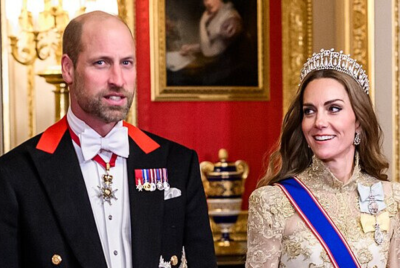Is Russia Targeting UK Satellites? What Space Command Says

Russia is attempting to disrupt Britain's satellites on a regular basis, which could impact everything from emergency services to banking transactions, according to the head of UK Space Command.
Major General Paul Tedman told the BBC that Russian forces are attempting to jam Britain's military satellites nearly every week, in what he described as a persistent campaign against the UK's orbital assets. 'These satellites are not abstract targets. They underpin navigation, secure communications, intelligence gathering, and even the timing systems used in international finance.'
How the UK Defends Its Satellites
The UK has around six dedicated military satellites, each equipped with counter-jamming technology. One method is frequency hopping, where the signal rapidly shifts frequencies to interfere more effectively. Tedman warned that Russia also operates satellites capable of shadowing, observing, or even attempting to blind British systems.
He characterised Moscow's tactics as 'reasonably persistent,' painting a picture of a high-stakes contest in orbit where each side adapts with new measures and countermeasures.
Europe's Growing Concerns
Britain is not alone in reporting hostile behaviour in space. Germany has accused Russia of tracking its satellites, while France has issued warnings of 'hostile' behaviour in orbit.
The UK has also joined with the United States in joint defence exercises. In September, under Operation Olympic Defender, a US satellite repositioned to check on a British one, a move unthinkable a decade ago but now part of routine allied coordination.
Alongside @US_SpaceCom, we have delivered the first UK-US operation in space, as part of a Multinational Force – Operation Olympic Defender.
— Royal Air Force (@RoyalAirForce) September 18, 2025
A US satellite moved closely to SKYNET 5A, a UK communications satellite, to make sure it was operating in orbit as intended.
🇬🇧 🇺🇸 pic.twitter.com/F3L8HrVQ9q
The Evidence Question
Despite the alarming tone, there are no public logs or confirmed technical records to verify the 'weekly jamming' claim. That does not mean the warnings are unfounded. Jamming does not involve destroying satellites; it means flooding their signals with noise, which is far easier to attempt but harder to measure from outside classified channels.
The real issue is scale. Without access to details, it remains unclear whether Russia's attempts cause severe operational disruption or probe Britain's defences.
A Quiet War Above Our Heads
What is clear is that space is no longer a neutral arena. Satellites, once seen as background infrastructure, are now contested assets in an emerging security front. The UK is investing in new sensors and defensive systems to counter threats such as laser blinding.
For the public, satellites remain invisible, yet their absence would be felt instantly. From GPS directions to secure transactions, everyday life depends on uninterrupted orbital systems.
Even if Russia's actions fall short of outright attacks, the frequency of warnings suggests that a shadow conflict in orbit has already begun. The challenge for governments is to distinguish between rhetoric and real capability while preparing for a future where space security is as critical as land, sea, or air defence.
© Copyright IBTimes 2025. All rights reserved.



















